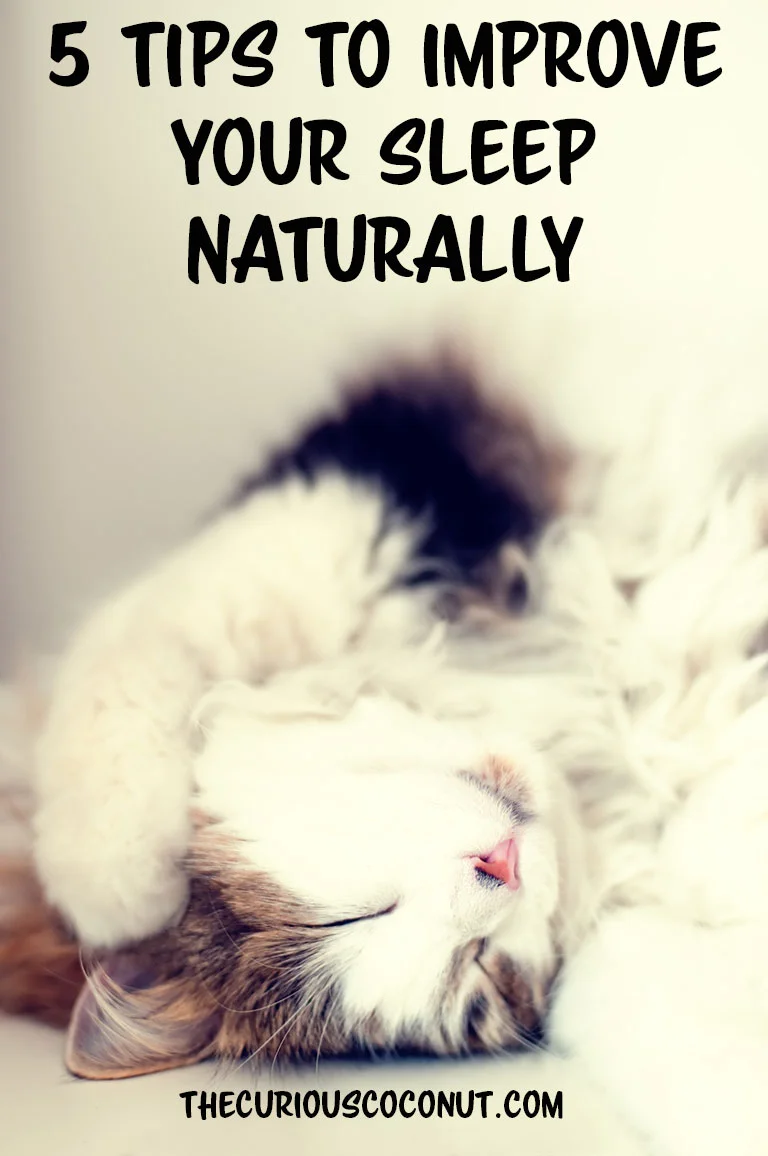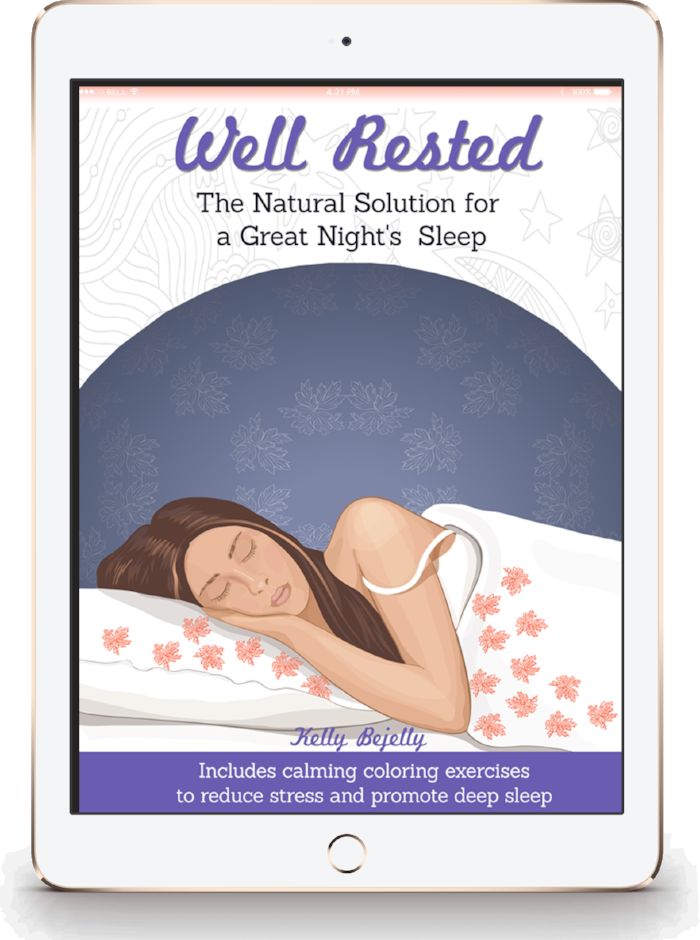Do you place the proper emphasis on a good night's sleep every single night?
I know it can be difficult - believe me, I have been a life-long sufferer of insomnia. Prior to 2010 I relied on prescription sleeping pills and anxiolytics to help me sleep. It has only really been in the last year, living in Memphis, that I have felt like I enjoy high quality sleep every night.
I can remember as a young child often lying awake in bed, unable to sleep. I have always been a worrier, and even as a child anxiety and worry would keep me up at night. Mindfulness and meditation have completely changed that for me in the last year.
The truth about sleep is that if you are not getting enough, then you cannot possibly enjoy the fullest vibrant health. And the efforts you are making in other areas of your life (hint: following a perfect diet) may be in vain if you are not also taking care of yourself with proper sleep.
The good news is that I've got some great tips for you to try out - some of which you can implement immediately, and all of which are strongly grounded in science.
5 Ways to Improve Your Sleep Naturally
1. Address your sleep environment. Is your bed comfortable? (Have you been putting off replacing your old mattress?) Does your bedroom feel like a safe haven? Is it quiet, dark, and cool? Do you keep it neat and tidy? As silly as it sounds, you want your bedroom to be almost cave-like to promote the best sleep. That means blocking out light (I use blackout curtains), setting the thermostat down (ideally below 75F), and taking steps to reduce noise (I use noise-reducing window inserts - review coming soon). Also, bedrooms should be for activities done in BED only. No TV, no desk, no work, just sleep and sex. For info on doing a complete bedroom overhaul check out Well Rested - learn more below.
2. Address your diet. Are you consuming stimulating foods or drinks too late in the day? These can include coffee, black tea, chocolate, and spicy foods. You also should be eating your last meal a bare minimum of 3 hours before you plan to be asleep, both for your digestion and for your sleep! You may also have trouble sleeping if you are still eating something you are intolerant to. It may be worth trying an elimination diet (like going strict Paleo or strict AIP) to see if you have some sensitivities you were unaware of. I know that when I have eaten food I am sensitive to, it leads to a racing heart and mind and extremely poor sleep. (More info on the diet-sleep connection in Well Rested)
3. Address your stress and mental state. Stress and anxiety were the biggest causes of insomnia for me. Sometimes they would cause me to lie awake for hours at a time. The solution I have found is to include more calming self-care activities, especially after the sun sets. Interestingly, the way this has played for me is that my husband and I spend time enjoying non-digital entertainment: books, listening to records, playing cards, playing Scrabble with an actual Scrabble board, and coloring. I have also started meditating before bed, and I share my favorite bedtime meditation below.
4. Address your relationship with the sun. This may sound weird, but changing the way you are exposed to the sun each day can have profound impacts on your sleep/wake cycle (circadian rhythms). In short, you (more specifically the neural tissue in the backs of your eyes) need exposure to the sun as soon as possible after waking, and you need to limit exposure to artificial light after sunset as much as possible. This leads into #5...
5. Address your exposure to screens after dark. The science is clear on this point: exposure to blue-light emitting screens after dark suppresses melatonin production, disrupts sleep, and messes up your circadian rhythm. Install f.lux (which removes the blue hue from the screen as the sun sets) on all your devices, use the night time feature on your Mac products, and wear blue blocking glasses (Consumer Reports rated Uvex Skyper the best ones, and they're inexpensive! I own this one, which fits over glasses, but you may prefer this one if you don't wear glasses.)
Meditation and Mindfulness for Better Sleep
As I mentioned, anxiety and worry have been major saboteurs of my sleep for most of my life. It's like the scumbag brain meme...
For years I relied on both over-the-counter and prescription drugs to help me sleep. I am not proud of all the Ambien and Lunesta I used (and, if I'm really honest, abused) in college and grad school. Even though pills helped me fall asleep I rarely actually felt rested.
In 2010 I switched to using various herbs (teas, tinctures, and pills) to help me sleep but would still lie awake too often. And I didn't like relying on a substance, even a natural one, for sleep.
2015-2016 has been a year of MAJOR overhaul. I have changed my personal habits, implemented regular self-care, and I have studied and practiced Buddhist and Zen meditation. The difference these things have made in my mental calmness is profound. A simple meditation before bed helps shut off the old anxiety demon and help me fall asleep fast.
The point of meditation is to stop using your mind to time-travel back into the past or into the future. It is about being fully present in the current moment, being with your body and letting yourself feel whatever is happening inside, both physically and mentally. You should be present when you are trying to fall asleep - if you are anywhere else you will have difficulty drifting off.
There are some really great guided meditations in the free app & website Stop, Think, and Breathe that I sometimes use when things are really bad. Here's one that I find particularly helpful when I am dealing with anxiety, called "Counting Breaths", described using my own words:
- Begin by getting comfortable. This can be sitting in a chair with feet on the floor, laying flat on your back, or sitting up straight and cross-legged on the floor.
- Take a few deep breaths and take a moment to clear your mind. To give your mind something to focus on, follow your breath - in and out, in and out. Notice how it feels to breathe, from your nose to your belly.
- When thoughts arise, simply take a moment to label them as "thought" and allow them to pass while you continue to be fully aware of the sensation of breathing.
- Begin counting. Inhale, exhale, "one". Inhale, exhale "two". Go all the way to 10. Go back down to 1 if necessary. The catch: if you are interrupted by thoughts you must start over again at 1. You won't be able to make it to 10 on your first try, and that's OK! With practice it will get easier.
I use this to help me drift off to sleep. Sometimes it can help surprisingly quickly! This is also great any time I am feeling overwhelmed or anxious, too.
If you want more information about how to start meditating so that you can calm your mind before bed and sleep easier, I can recommend the following books:
Well Rested: Comprehensive Sleep Guide and Coloring Book
If you are looking for a comprehensive guide with step-by-step instructions to achieve better sleep every single night then you need the eBook Well Rested.
This eBook is a health manual combined with a whimsical coloring book. I have seen copies of other sleep eBooks available now and Well Rested is by far my favorite. As a scientist, I am impressed with the level of research that went into the informational sections - and the best part is that it is presented in plain language that anyone can understand.
You will learn all the interesting details about how and why we sleep, gain a good understanding of how our circadian rhythms work (and more about my points 4 & 5 above), and then learn how to take all of that knowledge and use it to your advantage to give you amazing sleep every single night. It also empowers you to come up with a bedtime routine (that you will actually stick to) and will get you in the habit of coloring every night to promote relaxation and a sense of well-being before hitting the hay.
And heck, you can even use the coloring pages during the day if you like, too! Don't forget that you get a free mini coloring eBook when you join my newsletter, so make sure you do that (use the box further down).
Grab your copy of Well Rested now!
If you need colored pencils or pens for coloring then check these options out:























This gluten- and dairy-free green bean casserole is just as quick and easy to make as the original, but without the allergens and additives.